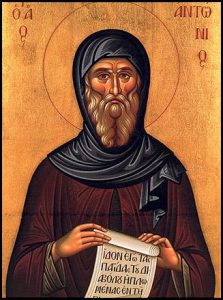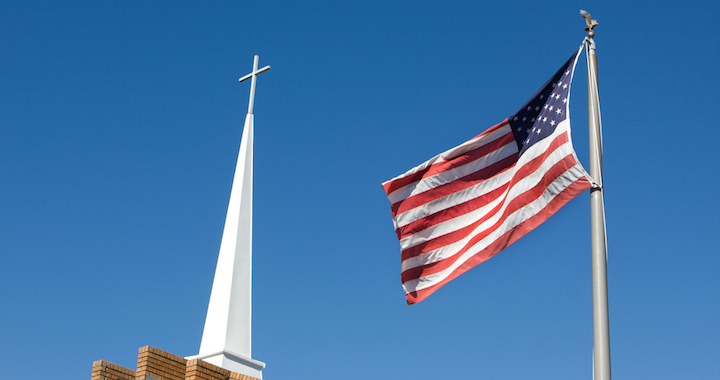When Thomas Jefferson used the term “separation of Church and State” it was to assure a group of Baptists that the State would not trample the rights of their community. He wrote:
“Believing with you that religion is a matter which lies solely between Man & his God, that he owes account to none other for his faith or his worship, that the legitimate powers of government reach actions only, & not opinions, I contemplate with sovereign reverence that act of the whole American people which declared that their legislature should ‘make no law respecting an establishment of religion, or prohibiting the free exercise thereof,’ thus building a wall of separation between Church & State. Adhering to this expression of the supreme will of the nation in behalf of the rights of conscience, I shall see with sincere satisfaction the progress of those sentiments which tend to restore to man all his natural rights, convinced he has no natural right in opposition to his social duties.”
Jefferson’s insistence upon the “building [of] a wall of separation of Church and State” was to assure that the American government would make “no law respecting an establishment of religion, or prohibiting the free exercise thereof.” This last quote is found both in Jefferson’s letter and the First Amendment to the Constitution of the United States of America. But the term “separation of Church and State” is found exclusively in the letter.
Recently, Hillary Clinton gave a talk to a pro-abortion group. Because Christians are the number one opposition to full-access abortion, Hillary said that “deep-seated cultural codes, religious beliefs and structural biases have to be changed.” We should note that not even communist leaders spoke so boldly fifty years ago. They were smart enough to first hide their intentions to begin a state-based religion (atheism.) Only later did governments disarm and kill any dissidents. In fact, governments killed a total of 170 million of their own people during the 20th century.
Few (if any) of these leaders blew their own anti-religion cover by stating that “deep-seated cultural codes, religious beliefs and structural biases have to be changed.” By argumentum a fortiori, we can be sure that Hillary Clinton will make good on her promise to Christians to eradicate any separation of Church and State. Remember, these are her words, not mine, that “religious beliefs…have to be changed.”
Is it my place as a Catholic priest to blog about this? We should consider history: Very few priestly saints refrained from getting involved in politics. St. Bernard of Clairvaux (a gentle Mary-loving monk) may have been the single most powerful influence on European politics in the 12th century. Or, consider St. Francis Xavier. He gave his life to baptize hundreds of thousands in the far East in the 16th century. But when Portuguese settlers threatened his beloved Indians with slavery, St. Francis Xavier asked King John of Portugal for intervention. Should the king fail to control his subjects, St. Francis mildly promised the king that he would stand a good chance at experiencing the flames of hell. Even St. Anthony of the Desert, the 3rd century desert hermit, had an enormous influence on secular politics. The deeper he went into the desert of Egypt for solitude, the more emperors found him for advice.

My alma mater, a Jesuit University, has produced Jesuits from my graduating class who are now working at America magazine. One even flew out for my ordination. I disagree with most of their political views, but I support their right as priests to speak out on politics. Why? Because we priests were not ordained to bless statues and then watch TV. We were ordained to be leaders.
Fr. Michael Orsi, former Ave Maria Law School chaplain, recently spoke at a National Day of Remembrance for Aborted Children. He said: “Let me remind you: the Bible is a political document. The prophets, including John the Baptist, and Jesus, lost their lives because they spoke the truth to power…The Constitution is quickly being destroyed…Unless the right choice is made in November, we may not have a court that is fair and balanced in its interpretation of the Constitution.”
Does he have a right to say this? Fr. Orsi and every priest has two ways in which he can live the Holy Priesthood:
Option 1: Give the sacraments to everyone who is headed to heaven or hell.
Option 2: Derail the train to hell, and then give the sacraments.
The first option will save a few souls, ruffle no feathers, and gain much popularity. The second option will ruffle feathers, compromise the priest’s popularity, and then save a lot more souls—and possibly a country.
